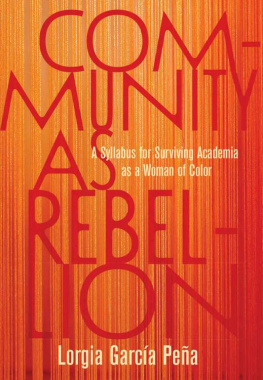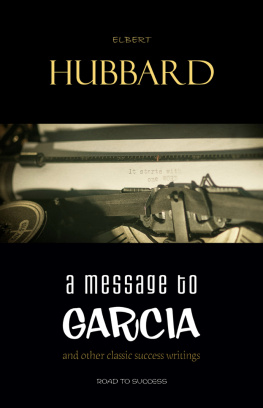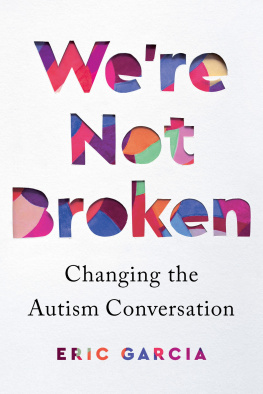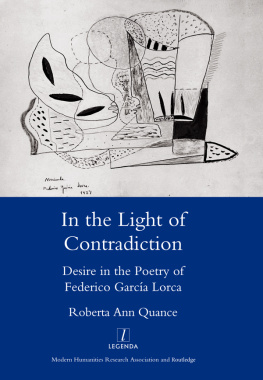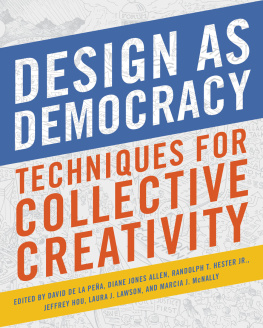Lorgia García Peña - Community as Rebellion
Here you can read online Lorgia García Peña - Community as Rebellion full text of the book (entire story) in english for free. Download pdf and epub, get meaning, cover and reviews about this ebook. year: 2022, publisher: Haymarket Books, genre: Home and family. Description of the work, (preface) as well as reviews are available. Best literature library LitArk.com created for fans of good reading and offers a wide selection of genres:
Romance novel
Science fiction
Adventure
Detective
Science
History
Home and family
Prose
Art
Politics
Computer
Non-fiction
Religion
Business
Children
Humor
Choose a favorite category and find really read worthwhile books. Enjoy immersion in the world of imagination, feel the emotions of the characters or learn something new for yourself, make an fascinating discovery.
- Book:Community as Rebellion
- Author:
- Publisher:Haymarket Books
- Genre:
- Year:2022
- Rating:3 / 5
- Favourites:Add to favourites
- Your mark:
- 60
- 1
- 2
- 3
- 4
- 5
Community as Rebellion: summary, description and annotation
We offer to read an annotation, description, summary or preface (depends on what the author of the book "Community as Rebellion" wrote himself). If you haven't found the necessary information about the book — write in the comments, we will try to find it.
Community as Rebellion — read online for free the complete book (whole text) full work
Below is the text of the book, divided by pages. System saving the place of the last page read, allows you to conveniently read the book "Community as Rebellion" online for free, without having to search again every time where you left off. Put a bookmark, and you can go to the page where you finished reading at any time.
Font size:
Interval:
Bookmark:
PRAISE FOR COMMUNITY AS REBELLION
A lifesaving and life-affirming text, Community as Rebellion offers us the trenchant analysis and fearless strategy radical scholar-activists have long needed. But Lorgia Garca Peas intervention is especially valuable at this moment, as we collectively consider how our most important social institutions might be reimagined beyond the strongholds of white supremacy, heteropatriarchy, and racial capitalism more broadly. Angela Y. Davis, coauthor of Abolition. Feminism. Now.
Community as Rebellion is a must-read for anyone serious about confronting institutional racism, sexism, and elitism. Lorgia Garca Pea, one of her generations most brilliant scholar-activists, challenges us to confront academia as a colonial and colonizing space as the first step toward resistance and transformation. Her own experiences undergird her analysis and serve as a powerful call to action. Barbara Ransby, author of Eslanda: The Large and Unconventional Life of Mrs. Paul Robeson
Lorgia Garca Pea is one of the few courageous and brilliant intellectuals grounded in rigorous and visionary grassroots education. This pedagogical guide for genuine freedom struggles is so badly needed in our neofascist times! Cornel West, author of Race Matters
Unflinching, brilliant, and absolutely necessary. In these pages, Lorgia Garca Pea shares her experiences, and those of others, to reflect on what it means to be the stranger in academia: that sole symbol for diversity that still remains an outsider. Unwavering in its clarity and compassion, this powerful book reminds us that true belonging comes from actively building communities unafraid to center care and rebellion. Everyone should read this. Maaza Mengiste, author of The Shadow King
What does it mean to teach for freedom? Dr. Garca Pea asks and boldly beckons us toward its practice across the policed borders of discipline, nation, theoretical traditions, and entrenched racial categories. A capacious thinker, rigorous researcher, brilliant activist, and path-breaking scholar, Dr. Garca Pea calls on us, as she writes, to mind the historical gaps for long-subjugated stories and alerts us to the ways these gaps have been historically mined in extractive ways in the service of colonial projects and neoliberal calls for diversity. Her astonishing work gathers us under its broad canopy to plot and persevere toward communal rebellion and renewal. Deborah Paredez, author of Year of the Dog
With characteristic clarity, courage, and conviction, Lorgia Garca Pea draws on her remarkable history as an engaged scholar and committed activist to demonstrate the necessity of living in community and accompanying others as keys to both personal liberation and social transformation. George Lipsitz, author of The Possessive Investment in Whiteness
Community as Rebellion is partly an incisive and deeply personal expos of the neoliberal university and its racializing and patriarchal practices of denigrating women of color scholars while extracting their intellectual, administrative, and emotional labor. But it is, above all, a mandate to transform higher education that begins with recognizing our mutual obligations to each other and to the world we study, extending community beyond the ivory tower, and co-creating with our students new, autonomous intellectual spaces. Lorgia Garca Pea wrote this book not from a dream or an abstract theory but from building rebel communities for over a decade. She knows that there can be no free education without freedom.Robin D. G. Kelley, author of Freedom Dreams: The Black Radical Imagination

2022 Lorgia Garca Pea
Published in 2022 by
Haymarket Books
P.O. Box 180165
Chicago, IL 60618
773-583-7884
www.haymarketbooks.org
ISBN: 978-1-64259-719-6
Distributed to the trade in the US through Consortium Book Sales and Distribution (www.cbsd.com) and internationally through Ingram Publisher Services International (www.ingramcontent.com).
This book was published with the generous support of Lannan Foundation and Wallace Action Fund.
Special discounts are available for bulk purchases by organizations and institutions. Please email for more information.
Cover artwork from Fire by Teresita Fernndez.
Cover design by Rachel Cohen.
Library of Congress Cataloging-in-Publication data is available.

To bell hooks, in memoriam
To the women of color whose backs have been my bridges
To my students, who made a home for me
in this barbed wire that is academia
CONTENTS
COURSE REQUIREMENTS
1.An open heart
2.A flexible mind
3.The desire to be part of the sum, rather than a single part
4.Patience
Recommended Aids
1.The company of friends
2.A warm beverage
3.A comfortable place to lie or sit
4.A sunny window
Further Reading
On Being Included, by Sara Ahmed
This Bridge Called My Back, edited by Gloria Anzalda and Cherre Moraga
Levente no. yolayorkdominicanyork, by Josefina Bez
Rethinking Radical Anti-Racist Feminist Politics in a Global Neoliberal Context, by Ochy Curiel, translated by Manuela Borzone and Alexander Ponomareff
Abolition. Feminism. Now. by Angela Y. Davis, Gina Dent, Erica R. Meiners, and Beth E. Richie
Teaching Community: A Pedagogy of Hope, by bell hooks
Plantation Memories: Episodes of Everyday Racism, by Grada Kilomba
Sister Outsider: Essays and Speeches, by Audre Lorde
Feminism without Borders, by Chandra Talpade Mohanty
How We Get Free: Black Feminism and the Combahee River Collective, edited by Keeanga-Yamahtta Taylor
PREFACE
My family says I was born rebellious. As a child I grew accustomed to hearing people describe me as malcriada (uncivil), always making trouble, always speaking up when I was supposed to stay quiet. One of my first weapons of rebellion was my hair. I grew up in a predominantly Afro-descendant culture in which girls were expected to straighten our hair with chemicals and hot combs or otherwise groom it tight into submission. Mothers would be judged by the state of their little girls hair. Therefore, all the little girls were socialized into the same ritual of making kinks and curls disappear to make ourselves beautiful. From a very early age I refused these rituals, kicking and screaming every time someone tried (to no avail) to tame my hair. As soon as my mom styled my hair into five perfect (and extremely tight) coils, I would pull them out, letting my kinks fly wild. The kids would yell at me: Pajona, grea! (Dominican slang terms to describe a girl with messy, unruly, bad hair). The nuns at my school would discipline me, warn me that the future for rebellious children was hell. The nice aunties at church would entice me with pretty ribbons, showing me pictures of white children looking pretty with their hair nicely tamed. Nothing worked.
In the 1970s Dominican Republic, having natural hair was akin to rebellion. Activist women who aligned with the socialist revolution would grow Afros or otherwise leave their kinks unconstrained. A common tactic of the repressive Joaqun Balaguer regime (19661978) was to round up women with Afros and throw them in jail or shave off their hair in front of a crowd to teach them a lesson. Growing up in the 1980s and 1990s Dominican Republic, I was completely unaware of this violence; all I knew was I needed my hair to be free.
Next pageFont size:
Interval:
Bookmark:
Similar books «Community as Rebellion»
Look at similar books to Community as Rebellion. We have selected literature similar in name and meaning in the hope of providing readers with more options to find new, interesting, not yet read works.
Discussion, reviews of the book Community as Rebellion and just readers' own opinions. Leave your comments, write what you think about the work, its meaning or the main characters. Specify what exactly you liked and what you didn't like, and why you think so.

